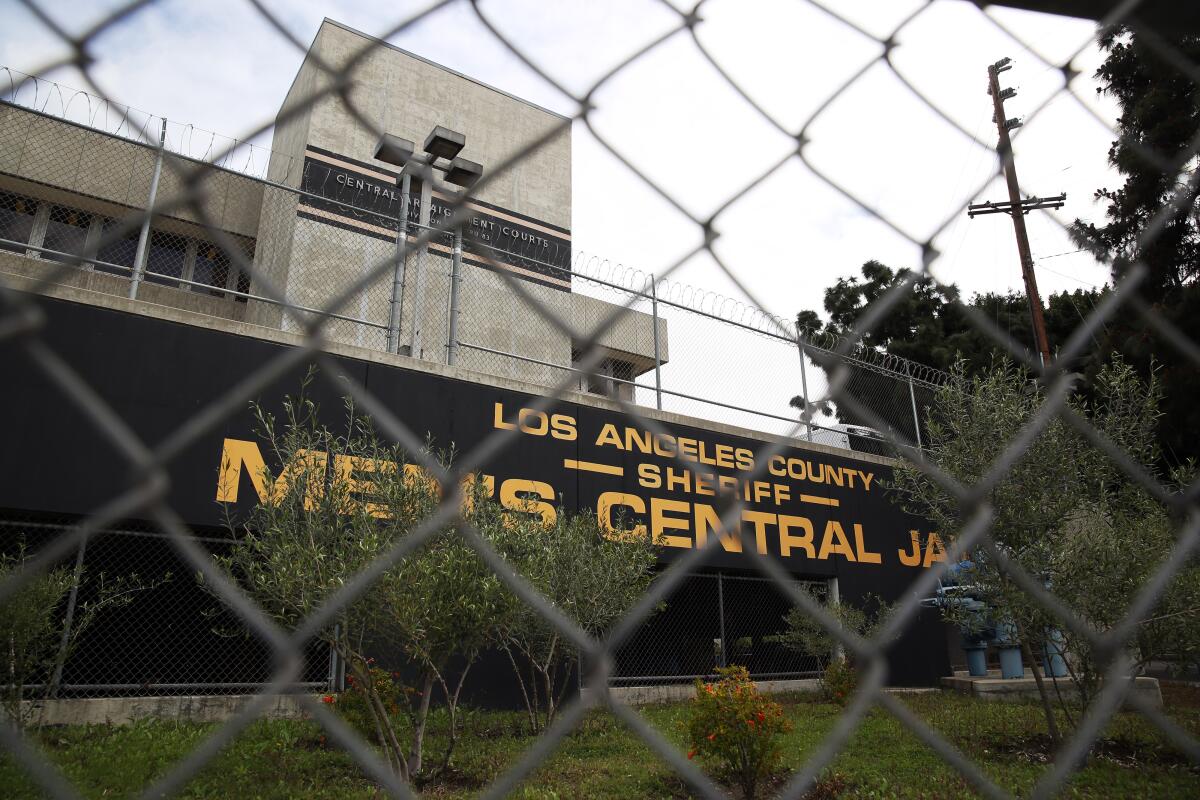Measure J: A look at the L.A. County criminal justice reform proposal

- Share via
Measure J would require that 10% of locally generated, unrestricted Los Angeles County money — estimated between $360 million and $900 million — be spent on a variety of social services, including housing, mental health treatment and jail diversion programs. The county would be prohibited from using the money on prisons, jails or law enforcement agencies.
Here is a rundown of the L.A. County ballot measure.
The issues
The measure has pitted community justice activists against law enforcement officials and their backers over sharply differing visions of how the measure would affect policing. While it doesn’t call directly for police budget cuts, opponents claim that funds would inevitably be slashed from law enforcement.
Proponents say the measure’s aim is not to slash police staffing but instead address the significant costs of jailing low-income residents who commit low-level offenses as well as people with mental illnesses and substance abuse disorders.
An estimated 61% of the mental health population in L.A. County’s jails — about 3,400 people — would be more appropriate candidates for less costly, more effective diversion programs, if those programs had space or existed, according to a report by RAND Corp. published earlier this year.
It is unclear the exact amount of money Measure J would divert because much of the county’s unrestricted funds vary from year to year. Of the $9 billion in unrestricted money in the county’s $35-billion budget this year, about $2 billion goes to the Sheriff’s Department. Measure J funds would total about $360 million based on this year’s budget, according to an estimate provided by county officials.
State of the race
The Board of Supervisors placed Measure J on the ballot in the wake of the protests over the killing by police of George Floyd and the racial reckoning that followed. It was one of a flurry of criminal justice reform proposals launched after the summer of protests. Many of those proposed in Sacramento failed to materialize amid opposition from police and law enforcement unions.
Opponents of Measure J include the Assn. for Los Angeles Deputy Sheriffs, which has spent more than $3.5 million on campaign advertising on TV and social media.
Reading list
After year of civil unrest, Measure J asks voters to approve criminal justice reforms
L.A. County voters to decide whether to divert millions to social services and racial justice
L.A. County seeks plan to close aging Men’s Central Jail in a year
‘No more jails,’ just mental health centers. Is that a realistic policy for L.A. County?
L.A. County can help thousands of mentally ill inmates avoid arrest and homelessness, study finds
Stall tactics. Distractions. Lobbying. How police reform was derailed in California
More to Read
Sign up for Essential California
The most important California stories and recommendations in your inbox every morning.
You may occasionally receive promotional content from the Los Angeles Times.














